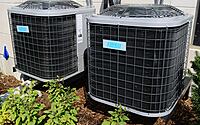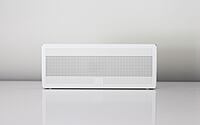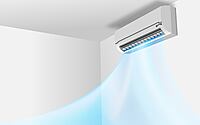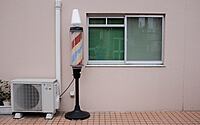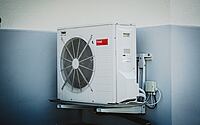5 Common Air Conditioner Problems You Should Know About
When neglected, air conditioners develop issues that keep them from meeting your home’s temperature requirements. These problems cause the AC unit to work harder than it should, increasing energy consumption and utility bills. An AC system that doesn’t function optimally lowers indoor air quality, increasing the risk of respiratory diseases.
Familiarizing yourself with common AC issues can help you identify them on time and find ways to address them or prevent them. This article outlines five common air conditioner problems you should know about.
1. AC refrigerant leaks
Refrigerants play a crucial role in your space’s cooling process. Refrigerant leaks can significantly impact your HVAC system’s efficiency and your home’s comfort. If your refrigerant leaks via vents, it can harm your health. Coolant leak exposure through
inhalation may cause shortness of breath, dizziness, poor concentration, and lack of coordination. AC refrigerant leaks may be caused by corrosion, weakened connections and joints in the AC, factory defects, and wear and tear.
While refrigerant leaks are common, they aren’t always obvious. Signs you may have a refrigerant leak may include an increase in electricity bills, the unit taking longer to cool your space, high humidity levels, a frozen evaporator coil, a hissing sound, and low airflow. With the help of an AC expert, such as Air Conditioning Sunshine Coast, you can have your refrigerant leak issue addressed.
2. Bad odors
Bad AC odors are a problem most homeowners have to deal with. These may be caused by refrigerant leaks, dust in the AC unit, multiple AC parts burning, gas leaks, water accumulation in the drainage system and drain line, dirty air filters, bacteria buildup, mold in the ductwork, clogged condensate pan, ruptured sewer vent pipe, and more. If not addressed correctly, these smells may cause health issues, cost you more in the long run, and wreak havoc on your HVAC system. Get a professional to inspect your system for the correct diagnosis.
3. AC is not functioning at all
If your AC suddenly shuts down and stops functioning, a few things could be the problem. Before calling an HVAC professional, check the thermostat batteries and replace them. If the batteries are okay, look at the thermostat settings to ascertain if the cooling mode is on and has your preferred temperature settings. If the AC is still not working, consider checking if the circuit breaker has tripped. These checks should be enough to turn your AC on if it doesn’t have a significant issue. However, if the AC is still not working, you call an expert to assess and fix it.
4. The AC blowing hot or warm air
If your air conditioning is blowing hot or warm air, first ascertain that the thermostat settings are as they should be. If they’re okay, the problem could be with your air filters. Clogged or old air filters may lead to frozen coils. If there isn’t a problem with the filters, your refrigerant levels could be low. So, get a technician to handle the issue.
5. AC noises
A properly functioning AC shouldn’t be heard. A failing AC may make different sounds to indicate the unit is struggling to serve you. Squealing and screeching sounds may imply a faulty belt. A problem with the motor, compressors, or fans may cause rattling sounds. Get the cause of these noises diagnosed by a professional for the right solution.
Endnote
AC issues cause health problems, high energy bills, and discomfort in your home. Familiarize yourself with these AC problems and how to address them.
- by Matt Watts
